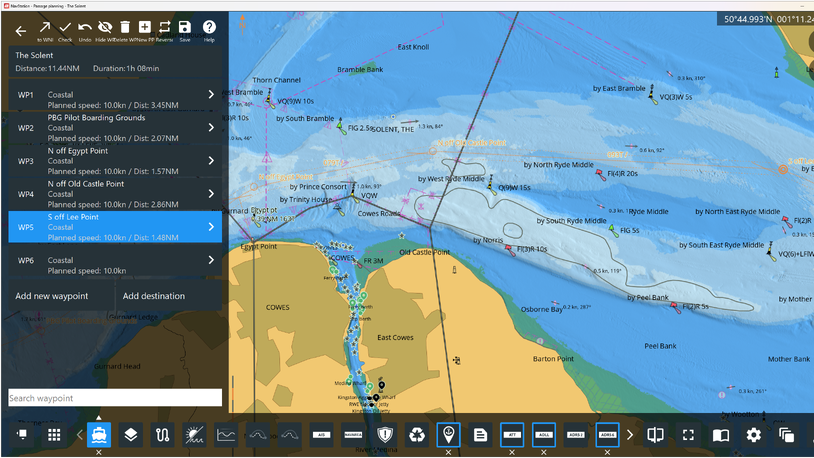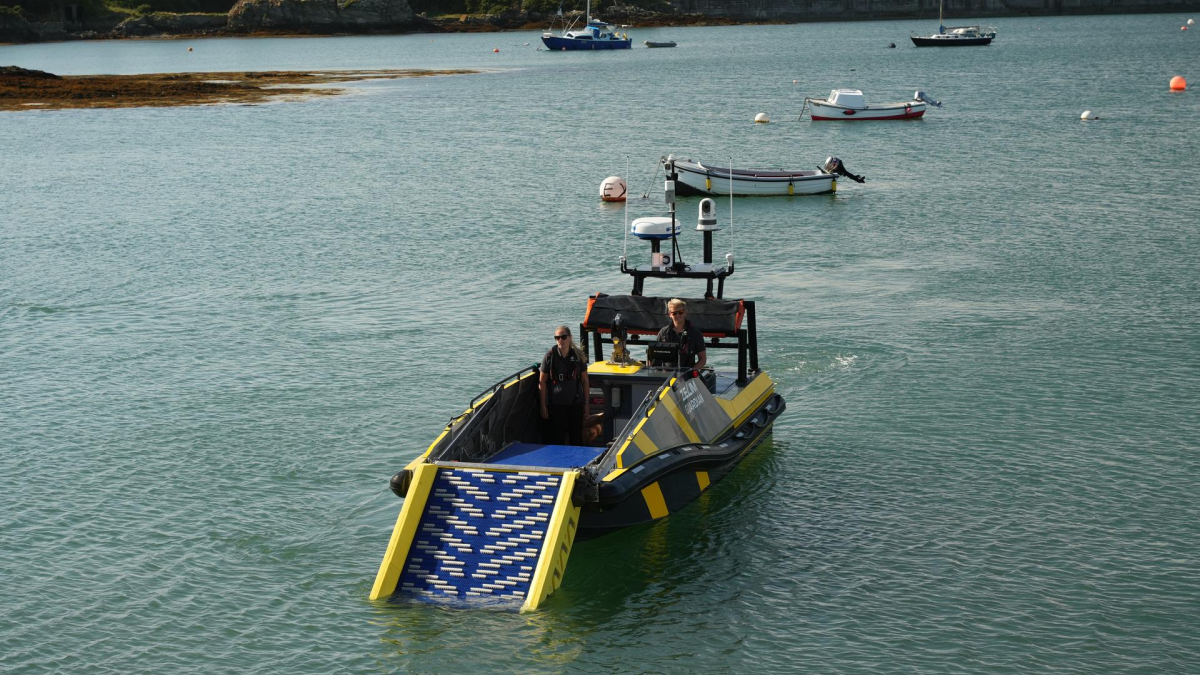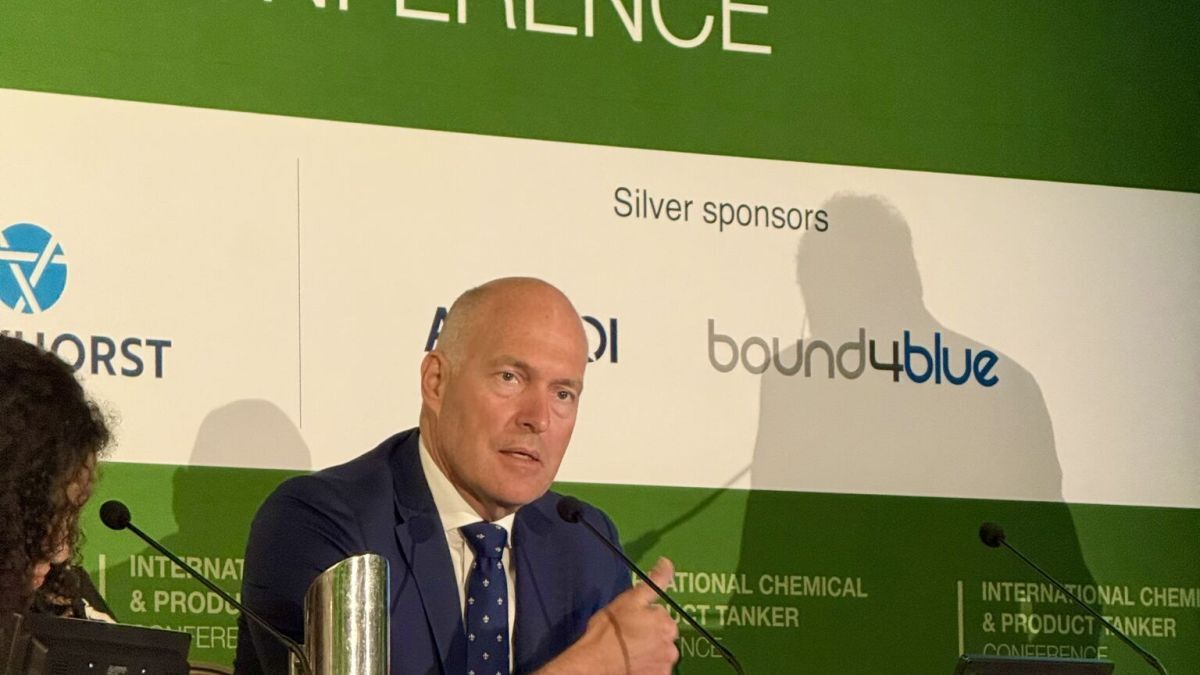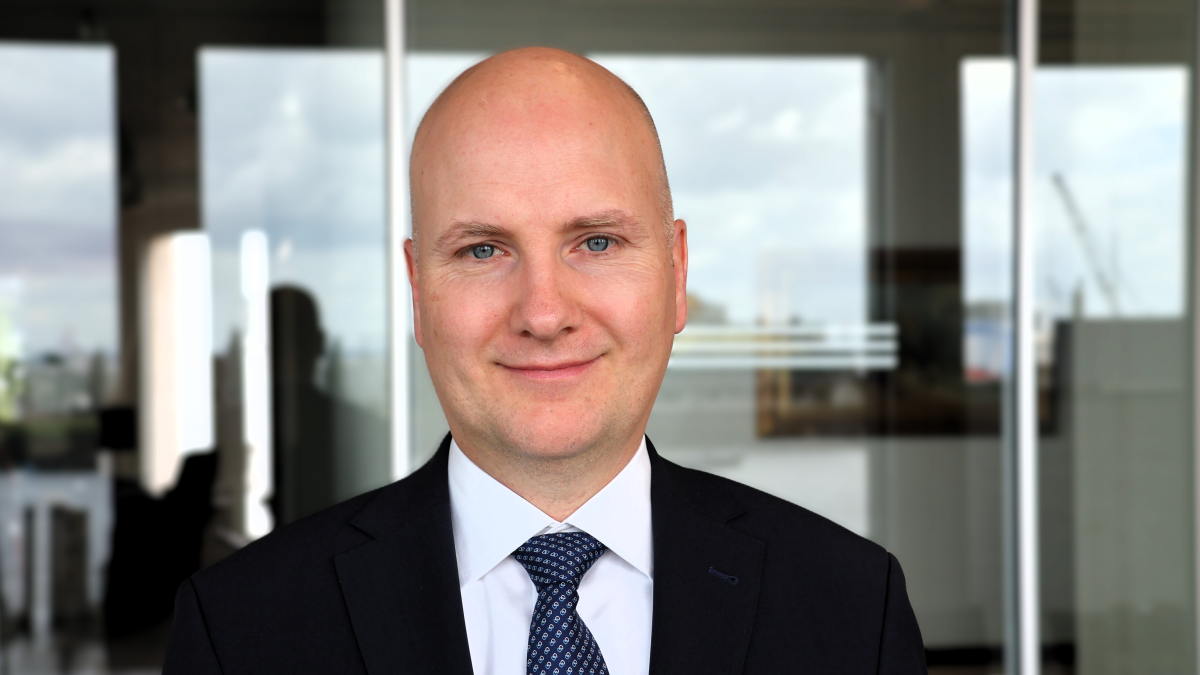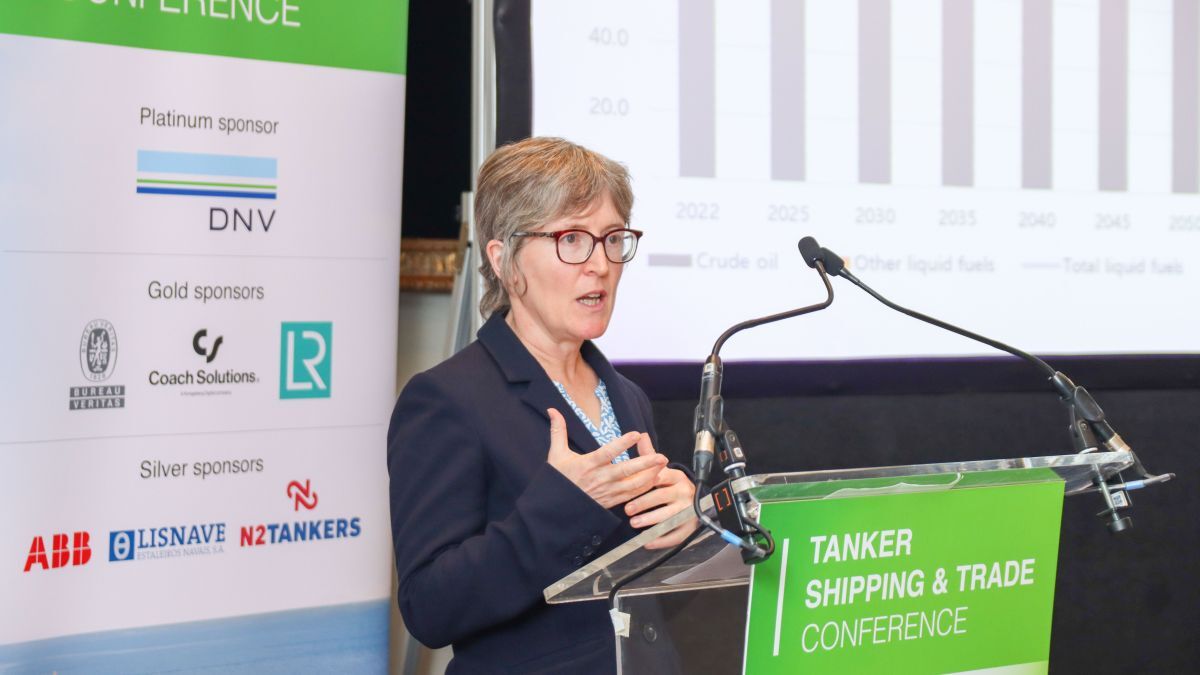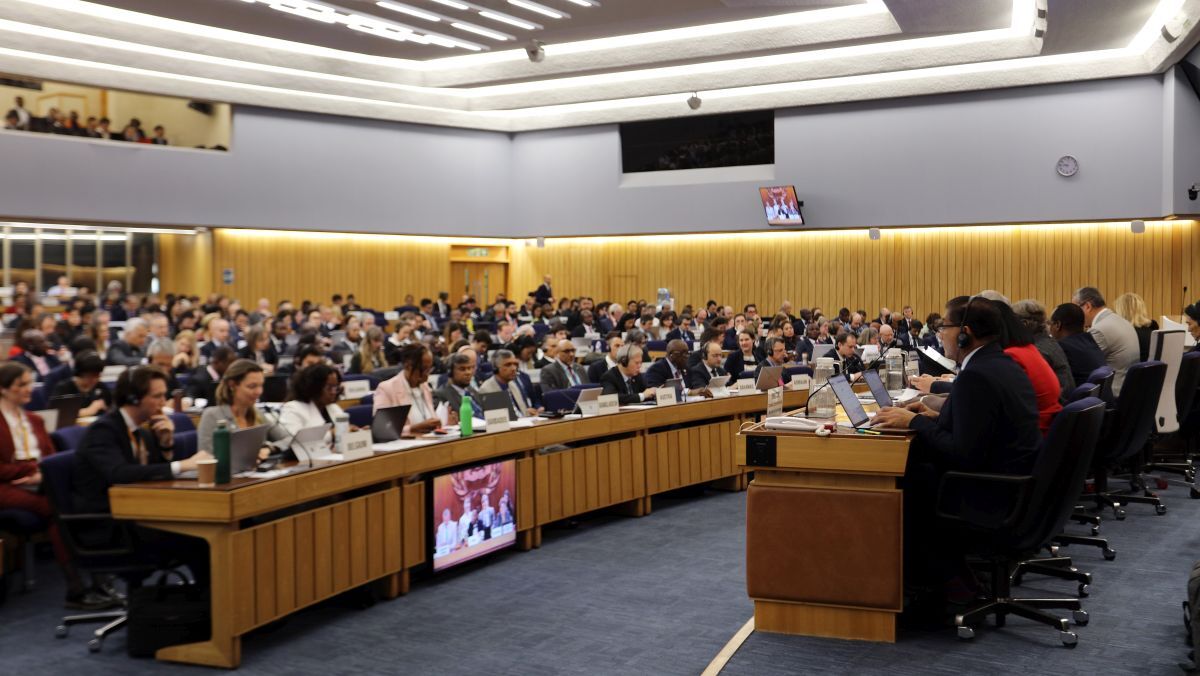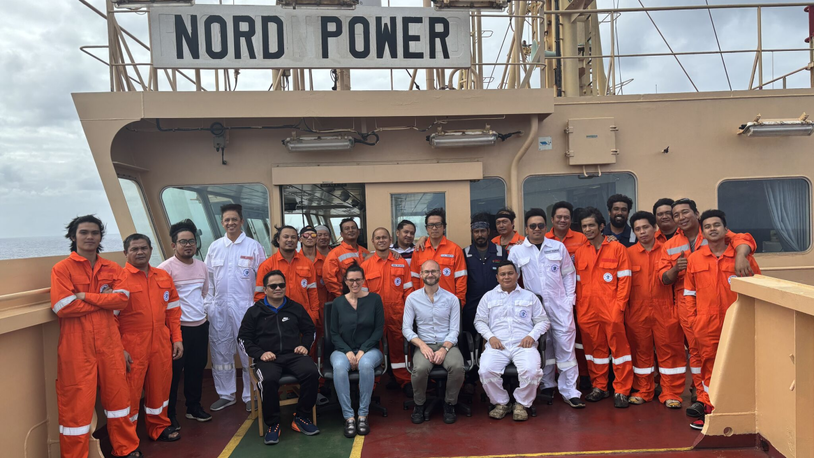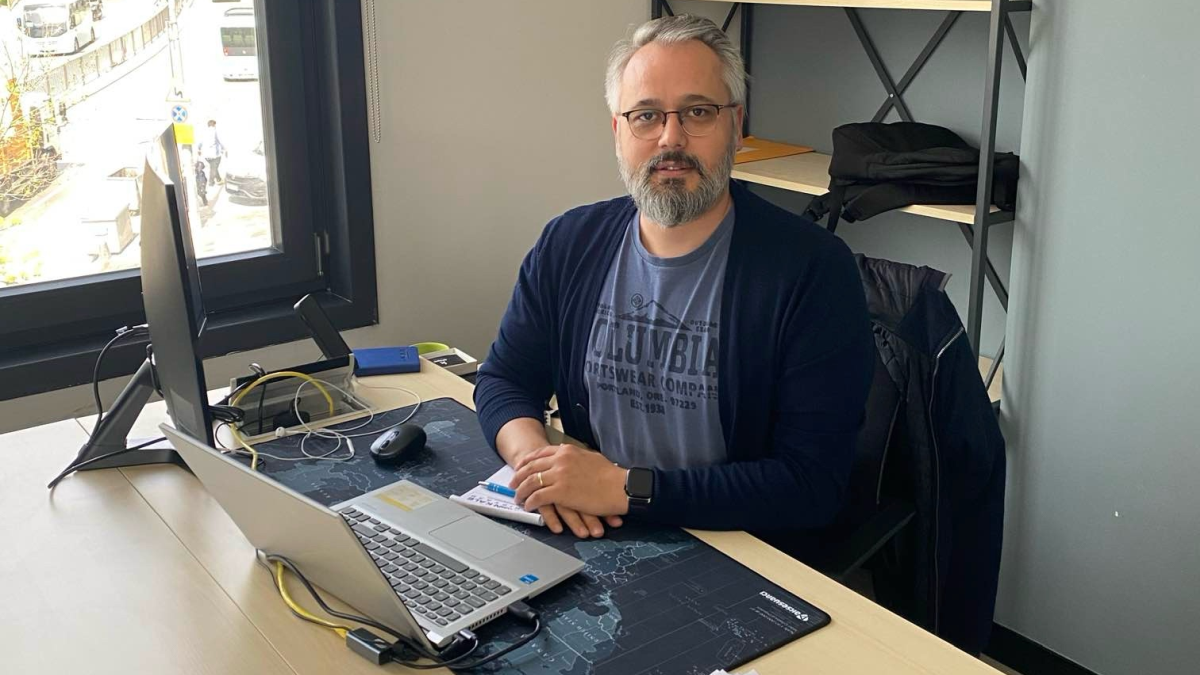Business Sectors
Events
Contents
Autonomous mariner rescue vessel launched at SMM
Computer processing, artificial-intelligent detection software and waterjets are the technologies behind a new unmanned, autonomous surface vessel dedicated to finding and recovering people in the sea
Scottish company Zelim is introducing the world’s first unmanned vessel for rescuing seafarers at the SMM exhibition in Hamburg, Germany.
The Edinburgh, UK-headquartered company said its Guardian fast rescue craft can operate in maritime conditions that conventional manned recovery solutions would find challenging or too dangerous to deploy.
It is aluminium hulled, with an overall length of 8.4 m, width of 2.5 m, with an Alamarin AJ285 waterjet powered by a single Bukh-manufactured VGT 400HP motor. Guardian can achieve speeds of up to 30 knots, a range of 15 nautical miles and has an endurance of a six hours.
Guardian, with capacity for 11 survivors, features an autonomous navigation system and cameras that provide rescuers with visual cues overlayed on a human-machine interface and display.
Zelim’s Zoe software enables instant detection and alerts when people and objects are in its field of view at sea. It can differentiate between a human in the water and other objects that might be present such as buoys, flotsam and jetsam, providing real-time location information.
A Guardian also comes with Zelim’s Swift rapid rescue conveyor for recovering a casualty at sea. Zelim said this is designed "to grip and recover immersed casualties, while minimising the risk to casualties from the loss of hydrostatic pressure."
During a person-overboard event, Guardian would be instantaneously lowered into the water by a ship’s existing LARS davit installed at deck level.
Once in the water, Guardian’s navigation and Zoe software detects the casualties. As this rescue vessel nears the person in the water, it lowers the integrated Swift and slowly heads towards the casualty who is then recovered from the water by the rescue conveyor. Swift can pull two survivors to safety simultaneously, minimising the risk for rescuers.
“Sea survival is hugely dependent on the time it takes to retrieve individuals from the water, but inclement weather can prohibit the launch of manned rescue craft and lives are needlessly lost,” said Zelim founder and innovator Sam Mayall.
“Ship crews have little time to carry out an effective rescue before maritime conditions prevent the casualty from assisting in their own rescue," he said.
"When rescue vessels approach, many survivors simply do not have the strength to pull themselves to safety. This is even more difficult when they are unconscious or unresponsive. Guardian has been designed to ensure more people can be rescued in the harshest of weather conditions.”
Zelim has spent four years developing and sea testing Guardian, with input from the UK’s Maritime & Coastguard Agency and the US Coast Guard. It has previously presented the technology in Edinburgh in 2022, at the British Tugowners Association’s safety seminar and at Riviera conferences.
Riviera’s Offshore Support Journal Conference, Asia, the premier annual event for the offshore energy and offshore vessels sector in the region, returns to Singapore on 17-18 September 2024. Use this link for more information and to register.
Riviera’s Maritime Decarbonisation, Europe: Conference, Awards & Exhibition 2024, will return to Amsterdam, the Netherlands, 24-25 September 2024 to address critical environmental issues head-on. Focused on the industry’s energy transition, the conference offers a comprehensive forum for stakeholders across the maritime sector to explore solutions and strategies for achieving low-carbon shipping and zero-emissions shipping.
Related to this Story
Events
Maritime Environmental Protection Webinar Week
Cyber & Vessel Security Webinar Week
The illusion of safety: what we're getting wrong about crews, tech, and fatigue
Responsible Ship Recycling Forum 2025
© 2024 Riviera Maritime Media Ltd.

